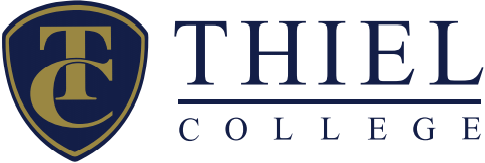Coronavirus Updates
HEALTH & SAFETY REFERENCE GUIDE - SPRING 2024
COVID-19 Pre-Arrival Screening
Prior to traveling to campus, students should get tested for COVID-19 if you are experiencing the following symptoms.
- Fever or chills
- Cough
- Shortness of breath or difficulty breathing
- Fatigue
- Muscle or body aches
- Headache
- New loss of taste or smell
- Sore throat
- Congestion or runny nose
- Nausea or vomiting
- Diarrhea
COVID-19 Testing
The College recommends following CDC testing guidance, including the recommendation for individuals to be tested immediately if they are experiencing COVID-19 symptoms. Campus Health and Wellness Services will no longer be administering testing, but they will accept positive results from home tests and/or can help refer students to local healthcare providers for testing. If a student tests positive for COVID-19, they should mask immediately, avoid contact with others, and share their test results with Campus Health and Wellness Services by calling 724-589-2195. At that time, Campus Health and Wellness Services will provide further guidance.
If a student tests positive prior to arriving to campus, they should send a copy of their results to health_services@thiel.edu and follow the CDC isolation guidelines.
Masking
The use of multiple prevention strategies like vaccination and masking can help mitigate the risk of COVID-19 infection. As a campus community we respect and support an individual’s choice to mask. The College recommends masking when individuals are feeling ill, in close contact with someone else who is sick with COVID-19, and/or if they or someone in their household are at higher risk for severe illness from COVID-19. The College requires masking for individuals who test positive for COVID-19 for a period of 10-days. Since there may be situations and spaces in which masks are needed, everyone should continue to have a mask in their possession while on-campus.
Isolation
The College will follow the CDC’s recommendations when deciding on who needs to isolate, mask, and/or refrain from certain campus activities (e.g., eating in the dining hall or participating in higher risk activities) due to infection or exposure to COVID-19. Students can fulfill their isolation periods within their current campus housing, but for their own comfort, it is recommended that they do so from home if possible.
Living in campus housing places individuals at greater risk for exposure to communicable disease. In a situation where a roommate is infected, the campus may not be able to provide an alternative living situation for the residents involved. If a student has a roommate who tests positive for COVID-19, they can request a temporary housing accommodation. Accommodations will be made based on availability, and prioritized for students unable to travel home due to extreme distance from campus (i.e., typically at least 300+ miles from campus). The College will not reimburse for housing or meals for students who leave campus for isolation.
Maintaining Academic Progress During Isolation
Faculty are committed to supporting the academic progress of students who are required to isolate according to College policy. Isolation requirements will be determined by Thiel College Health and Wellness Services Staff, and students will receive a signed isolation order from that department. The signed order can be used to verify an isolation requirement with their faculty. It is the responsibility of each student to communicate with their faculty regarding class absences.
The College does not guarantee that courses will be offered virtually throughout an isolation period. It will be left up to the faculty member to determine the appropriate support necessary for the student to maintain progress in their course. Students should reach out to their faculty (whenever possible) to communicate when they are required to isolate and develop a plan to maintain progress in their classes throughout that timeframe.
Student Employment and Isolation
Student employees are responsible for notifying supervisors if they are required to isolate and need to miss work. If a student is required by the College to isolate and they communicate those requirements to their supervisor, their supervisor is expected to maintain their employment after the isolation period without penalty. However, if a student fails to communicate with their supervisor in advance of missing employment obligations due to isolation (when reasonably possible), the employer is not obligated to continue their employment and the student may be penalized.
Resources
- COVID-19 Vaccine Information
- How to Find a COVID-19 Vaccine
- COVID-19 Prevention
- Higher Education Emergency Relief Fund III Information
- Quarterly Budget and Expenditure Reporting for all HEERF Funds (2023)
- Quarterly Budget and Expenditure Reporting for all HEERF Funds (Q2 - 2023)
*Please note that the College may change Health and Safety Policies at any time. Should any policies change, students will receive an email communication to notify them of the changes.


 Webmail
Webmail Google
Google Directory
Directory Campus Offices
Campus Offices Schedule an Event
Schedule an Event Maintenance Issue
Maintenance Issue IT Support
IT Support Academic Catalog
Academic Catalog Academic Resources
Academic Resources Accessibility
Accessibility Attend & Assist
Attend & Assist Buy Books
Buy Books Calendar
Calendar Campus Map
Campus Map Career-Focus 2
Career-Focus 2 Handshake
Handshake Course List
Course List Library
Library Moodle
Moodle Newsroom
Newsroom Public Safety
Public Safety Self Service
Self Service Solution Center
Solution Center Pay My Bill
Pay My Bill Thiel Gear
Thiel Gear Thiel Hub
Thiel Hub Tomcats Care
Tomcats Care Wellness Center
Wellness Center